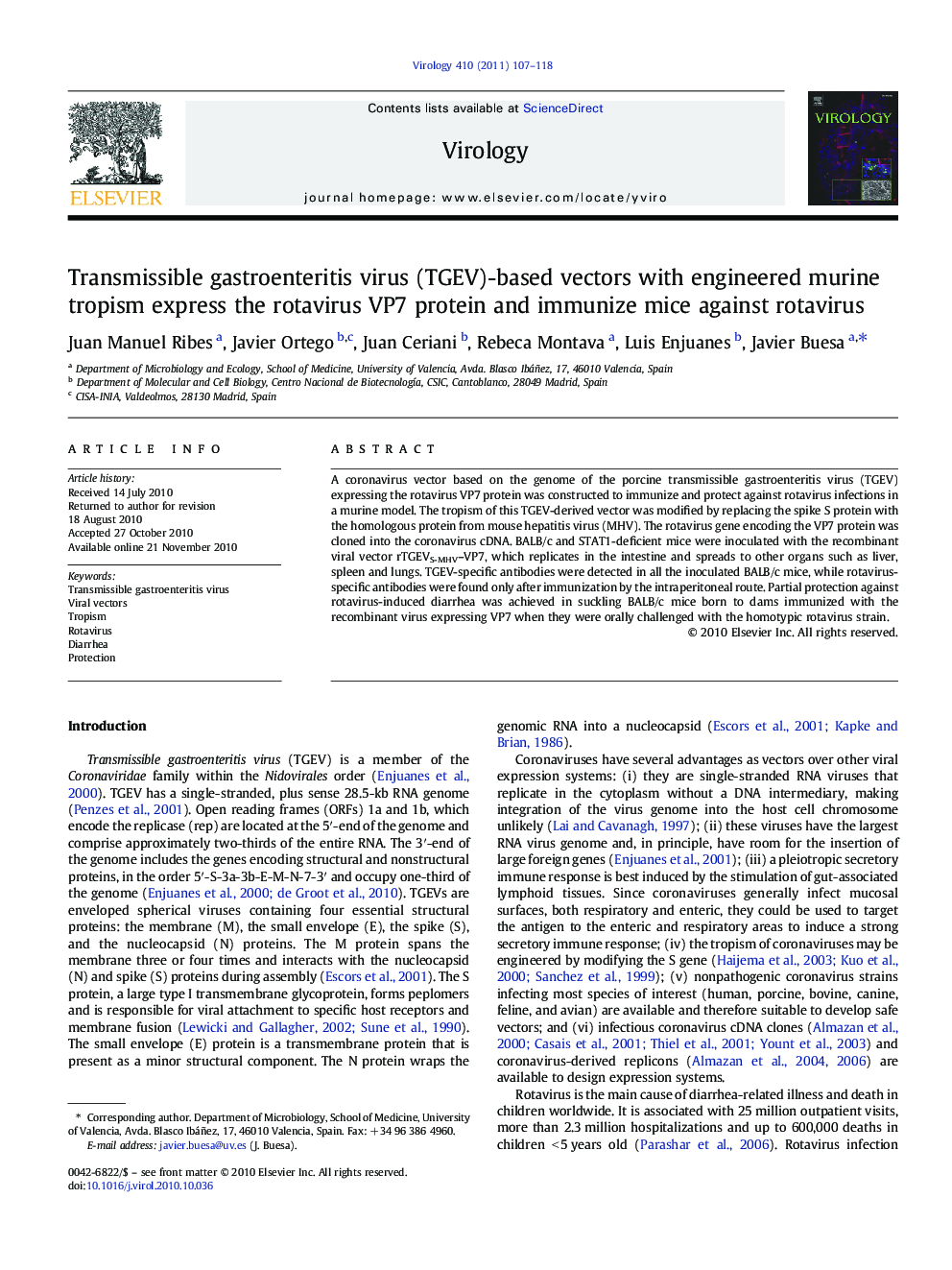| Article ID | Journal | Published Year | Pages | File Type |
|---|---|---|---|---|
| 6141520 | Virology | 2011 | 12 Pages |
Abstract
A coronavirus vector based on the genome of the porcine transmissible gastroenteritis virus (TGEV) expressing the rotavirus VP7 protein was constructed to immunize and protect against rotavirus infections in a murine model. The tropism of this TGEV-derived vector was modified by replacing the spike S protein with the homologous protein from mouse hepatitis virus (MHV). The rotavirus gene encoding the VP7 protein was cloned into the coronavirus cDNA. BALB/c and STAT1-deficient mice were inoculated with the recombinant viral vector rTGEVS-MHV-VP7, which replicates in the intestine and spreads to other organs such as liver, spleen and lungs. TGEV-specific antibodies were detected in all the inoculated BALB/c mice, while rotavirus-specific antibodies were found only after immunization by the intraperitoneal route. Partial protection against rotavirus-induced diarrhea was achieved in suckling BALB/c mice born to dams immunized with the recombinant virus expressing VP7 when they were orally challenged with the homotypic rotavirus strain.
Related Topics
Life Sciences
Immunology and Microbiology
Virology
Authors
Juan Manuel Ribes, Javier Ortego, Juan Ceriani, Rebeca Montava, Luis Enjuanes, Javier Buesa,
